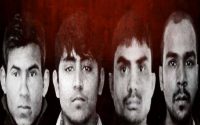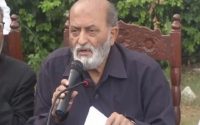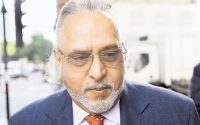$100 Website Offer
Get your personal website + domain for just $100.
Limited Time Offer!
Claim Your Website NowSupreme Court to Hear If Catholic Schools May Discriminate in Hiring.
Source – theepochtimes.com
WASHINGTON—The Supreme Court has agreed to hear arguments from two Catholic schools in Los Angeles that maintain the religious exemption in the First Amendment shields them from employment discrimination lawsuits brought by two former instructors.
The Supreme Court ordered Dec. 18 that the two cases, Our Lady of Guadalupe School v. Morrissey-Berru and St. James School v. Biel, be consolidated and heard together at some point in the new year.
Both cases were brought by the Becket Fund for Religious Liberty, a nonprofit and public interest law firm.
“Parents trust Catholic schools to assist them in one of their most important duties: forming the faith of their children,” said Montserrat Alvarado, vice president and executive director at Becket. “If courts can second-guess a Catholic school’s judgment about who should teach religious beliefs to fifth graders, then neither Catholics nor any other religious group can be confident in their ability to convey the faith to the next generation.”
In the two cases, panels of the 9th Circuit Court of Appeals allowed the teachers to move forward with their lawsuits. While one of the teachers claimed age discrimination, the other, who has since died and is now represented by her husband, alleged she was fired after telling the school she suffered from breast cancer.
Religious organizations argue the decisions in the two cases violate Supreme Court precedent by failing to recognize the “ministerial exception” that blocked a teacher at a Michigan Lutheran school from taking her employer to court.
This “ministerial exception” advances the “purposes of the First Amendment free exercise and establishment clauses by barring legal claims against church bodies by their employees who carry out religious functions,” John R. Vile writes at The First Amendment Encyclopedia.
The exception, which is said to protect churches from improper government influence, was first recognized by the Supreme Court in a 2012 ruling known as Hosanna-Tabor Evangelical Lutheran Church and School v. Employment Opportunity Division.
The Becket Fund said in a court brief that “seven federal courts of appeals and seven state supreme courts, in cases involving Catholic, Protestant, and Jewish employers and many different kinds of roles, have all concluded that the presence or absence of religious function is the touchstone of the ministerial exception inquiry.”
“In the face of that united approach among its sister courts, the Ninth Circuit decided to flout the consensus,” the brief stated, and found that “important religious functions could never be enough, by themselves, to prove an employee’s ministerial status.”
Becket said in a statement that it took the cases to prove that “religious groups can only operate freely if they are given full autonomy in choosing the individuals who teach their beliefs and embody their faith.”
This will be the second important religious freedom case to come before the high court in the current term that began in October.
Next month, the court will hear a case from Montana dealing with whether government funds can be used to cover tuition at a religious school.
In June, the Supreme Court rejected arguments that a large Latin cross must be relocated from public land in a Maryland suburb of Washington because its prominence supposedly implied government endorsement of Christianity.
In Bladensburg Peace Cross in American Legion v. American Humanist Association, the justices held 7–2 that Maryland wasn’t violating the Establishment Clause of the First Amendment by allowing the cross on public land and spending taxpayer dollars for its upkeep. The Trump administration backed the American Legion in the litigation.



